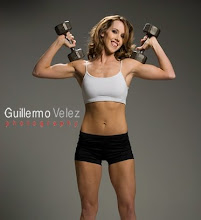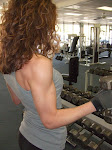Here are some noteworthy diet tips:
-Eliminate junk food. Most fast food restaurants along with most pastries and processed foods contain high amounts of fat, sodium, and sugar (usually simple sugars). The consumption of these foods will do little for your energy, except promote a high then a low in your blood sugar levels. In addition they offer high levels of fat, usually of the saturated type. And they quite often contain large amounts of water-retaining sodium. None of these qualities are beneficial to any type of athlete.
-Drink eight to ten glasses of water each day, or more (I personally drink a LOT more-over 3 gallons per day). This will ensure your replacing fluids lost during exercise. You need not wait until you are thirsty. By then, you are in a depleted state. Drink these glasses of water throughout a day's time, not all at once.
-Determine your daily protein requirements. Proteins that include the essential amino acids, (those that your body does not manufacture) are of utmost importance. Protein powder provides a great means to obtaining additional quality protein. And remember, proteins are best assimilated when accompanied by some carbohydrates. Where do you start? Try 1g per pound of bodyweight.
-Consume high fiber foods. Not only does high fiber in your diet help in the reduction of cholesterol; it also makes fats less likely to be absorbed into your body.
-Exercise to increase your lean body weight. The more lean weight you have, the more efficient your body moves and the higher your metabolism, even at rest. By increasing your lean body weight, your bones become more dense and your muscles, tendons and ligaments become stronger. The great side effect of all this is that it's easier to avoid getting fat. Remember, bigger muscles burn more calories than little ones. You DO NOT want to lose lean body mass! If you aren't already, whether your goal is to lose fat or gain muscle, you should be eating smaller meals every 2-3 hours! WHICH:
- Increases metabolism
- Gives your body a constant supply of nutrients
- Keeps your blood sugar stable and alleviates the post-meal "crashes" (ever feel lethargic after lunch?) since your not spiking your insulin.
- It keeps you relatively saturated and stops you from eating a huge amount at one time, which is an easy way to cause your body to store fat.
- You know that if you get hungry, you're going to be eating again in a very short time! No more waiting 6-7 hours between meals! You should always eat at least five meals a day. Two or three meals simply isn't often enough. If your muscles don't get the calories they need, how are they going to keep going? By CANNIBALIZING muscle tissue! That's the same muscle tissue you spent hours training to get! On the other hand, overeating even one meal a day keeps the fat-building enzymes in your body more numerous to turn the excess food into body fat. Always ask yourself "What will I be doing over the next 3 hours?" and eat based on that. If you're going to be busting your tail in the gym, you'd eat more than you would if you were going to sleep. Remember, when you overeat at a meal, the excess calories get stored as fat. So, if you skip a meal, do not eat to make up for it, eat for what you are going to be doing.
Contact Information
17 years ago





No comments:
Post a Comment